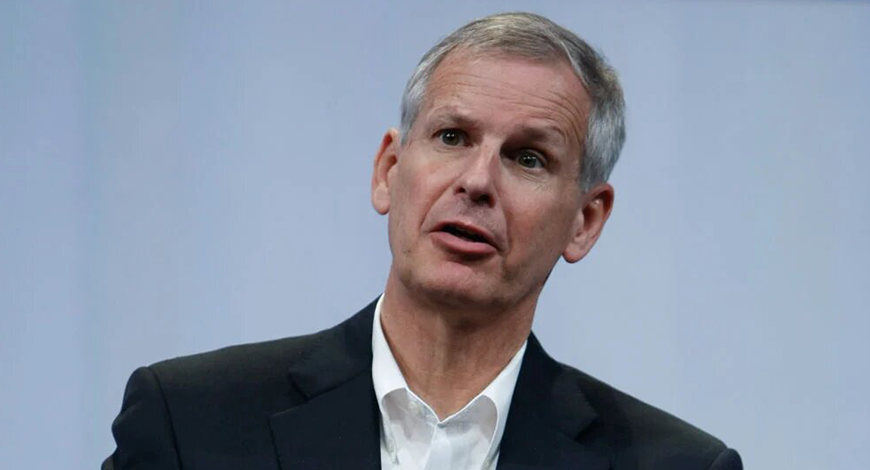Company News
EchoStar chairman Charlie Ergen skips earnings call amid debt worries

The singular voice of Charlie Ergen, long an outspoken figure willing to express unconventional views on the media business, fell silent Friday as he was absent for EchoStar‘s quarterly earnings call.
The Dish Network parent, of which Ergen is executive chairman, reported a loss of 314,000 Dish subscribers in the quarter, leaving it with 8.53 million. The downturn in pay-TV was blamed for causing an 8% slide in total revenue, to $4.16 billion from $4.53 billion in the prior-year period. Dish and EchoStar completed a merger in January, so the financials and year-to-year comparisons were provided on a pro-forma basis.
While the satellite firm is continuing to pivot from pay-TV to wireless, it faces a significant challenge regarding its debt load of $26 billion. In an SEC filing on Thursday ahead of earnings, the company noted that it “expects to use a substantial amount of cash” to make debt payments this year, including one in March. “This raises substantial doubt about its ability to continue as a going concern,” the filing noted.
EchoStar said debt repayments of $951 million and $1.98 billion are due in March and November, respectively. The company said it ended 2023 with $2.4 billion in cash.
Asked directly about why Ergen was not on the call, CEO Hamid Akhavan said, “First, I want to mention that today is Charlie’s birthday, so we’ve given him the day off. I want to wish Charlie the happiest and healthiest year ahead.” Getting more specific, Akhavan explained that now that he has been in the CEO role for nearly three months, “that has freed up Charlie, and given Charlie the ability to focus on more strategic and longer-term developments. Hopefully, I here and with the competent team that we have here around this table can answer all the questions for you. I’m delighted that Charlie has felt comfortable enough to let me run the business, so he can focus on bigger-picture opportunities.”
Asked about the outlook for repaying debt, Akhavan said, “We plan on meeting our immediate obligations in March and then we have, obviously, the window to November to address the next maturity. We obviously have access to a number of ways to do that.”
One route EchoStar has discussed is leveraging the wireless spectrum it acquired as it mounted an effort to challenge AT&T, Verizon and T-Mobile in the mobile sector. Some analysts have questioned whether mobile assets will be enough to save the day, however. MoffettNathanson’s Craig Moffett, in a blistering note to clients prior to the earnings call, wrote that EchoStar faces a “dire situation.” He began the note with an epigraph from Hemingway’s The Sun Also Rises, in which one character answers another’s question about how he went bankrupt: “Two ways. Gradually, then suddenly.”
Dish, Moffett wrote, “is losing subscribers in every business. Revenues are declining in all segments. Each quarter comes with new defections of senior management. It is simply not realistic to expect a
turnaround.” Even a bankruptcy filing would be complicated, he added, given that the likeliest buyers of wireless spectrum would be AT&T, Verizon and T-Mobile, but regulators would likely object to the Big Three gaining even more market share.
The debt is a significant issue, in Moffett’s view, because earnings are in “free fall,” the company’s pro-forma leverage ratio “utterly unsustainable.”
The Financial Times recently reported on creditors’ concern that Ergen and EchoStar got “too creative” in trying to meet the dual challenges of surging interest rates and pressure to keep pace with technology changes. The media outlet quoted a person close to a group of creditors, most of whom have mobilized against Dish’s debt restructuring effort, as saying, “No one trusts Charlie and everyone is on edge.” Ergen and his colleagues “obviously tried to come up with a transaction that was creative, and the market just said ‘no’,” another debt market participant said.
When it was a stand-alone company chaired by Ergen, Dish preserved a portion of its quarterly earnings calls for members of the press to ask questions. That practice did not continue on Friday’s call, and Akhavan also acknowledged that the call was front-loaded with nearly 30 minutes of prepared remarks, limiting the time alotted for Q&A with analysts. “We had a different format. We took some time up front, but hopefully that time was useful to answer some of these questions,” the exec said. Deadline






